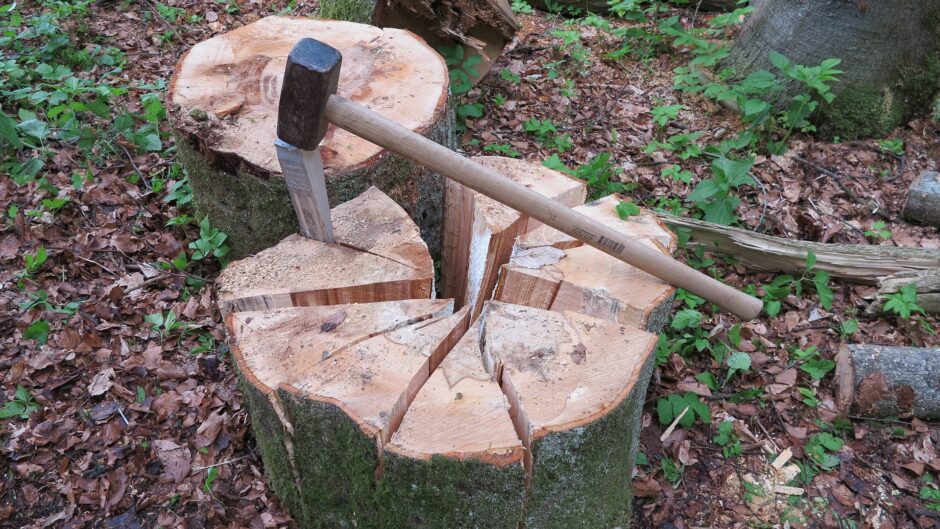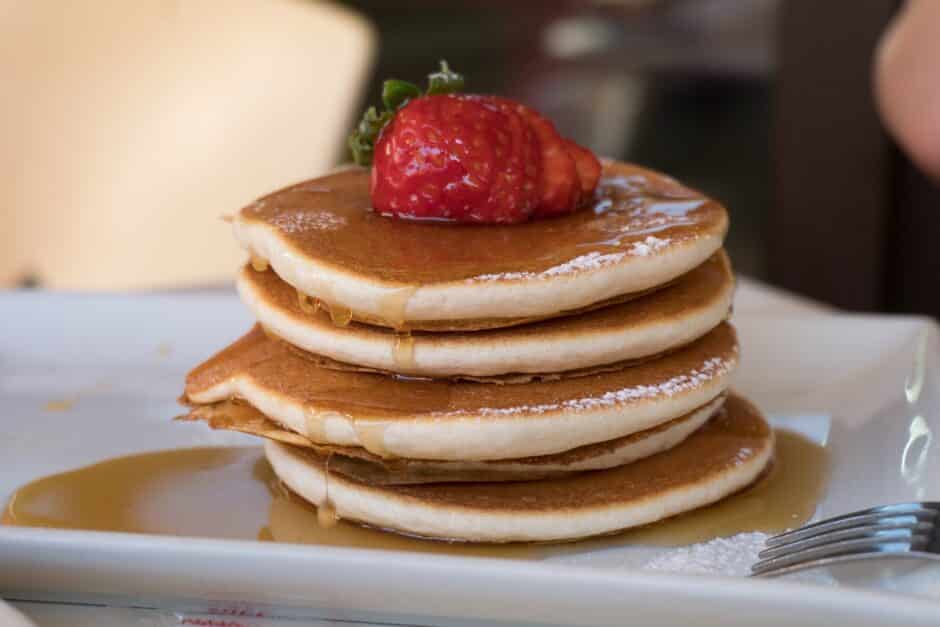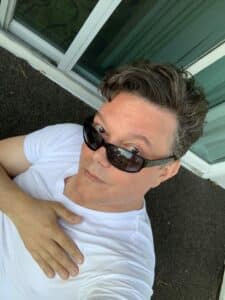I don’t discover the broken tree limbs until weeks after the ice storm. By then, my family has weathered not only the most snow and ice Louisville, Kentucky has seen since the 90s – we’ve also gotten through Achilles surgery, a child’s fractured pinky finger, and a $9,000 bill for a roof coming apart at the seams. I’m not even surprised when my husband returns from taking the boys to school one day and says, “Did you notice we lost some branches?”
I follow him into the backyard shaded by the abundance of trees planted on our small plot. I love our home like it’s another member of the family, our permanent address a respite after years of ever-rotating rentals. It’s where we have movie nights on a couch the size of a city bus, where I’m making my way through Wendell Berry’s collected poems in the living room we converted into a library, where I write, where I feed the blue jays and chase off the squirrels.
I clutch my coffee tighter against the chill still in the air. It’s the first official break in the February gray and sun streams across everything like someone threw the curtains open on the world. The rays of light dance across our one remaining pine – another ice storm our first winter took down its twin – now missing two enormous limbs. My heart aches for the damaged tree at the same time my brain starts running the numbers on calling someone to clean it up versus buying a chainsaw, like a self-respecting Kentuckian. Everything costs money.
It’s a few days before it occurs to me that my dad heats the rural home he shares with my stepmom and niece with firewood. Every fall, right around my birthday, he hooks the carryall to the tractor, rides down the big hill into the woods, and gathers firewood for the winter. I don’t have to close my eyes to imagine the wood pile that sits near the house. It stands so tall we could climb it when we were kids. If anyone has a chainsaw up for the job, it’s him. But I’m not in the habit of asking my father for things. Outside the refuge of my home, words don’t come easy in my familial relationships. There’s nothing noble about my silent suffering, the way I swallow everything because it’s easier to avoid someone I love than it is to tell them complicated truths.
A year ago, I probably would have made the drive to the hardware store for the chainsaw and tried not to break any bones getting down the massive limbs, one still attached ten feet up the trunk. But a lot can change in a year. I text my dad a picture of the tree and ask if he has time to help.
I prepare myself for it to be days before he texts me back, like when I sent the rare vulnerable text around the one-year anniversary of my brother’s death and asked him not to drink his way through grief. But this time his response comes back quickly. He fires off questions about the tree, but also the roof, my husband’s physical therapy, my youngest’s pinky finger. He tells me we can get this done, no problem, do not hire a tree service, he wants to help in any way he can.
Survivor’s guilt goes from concept to experience as the thought darts through my head: He has time to help me because my brother’s dead. Even if it’s true that my brother’s addiction and the resulting costs to my father’s time, money, and resources impacted his ability to help me, it’s not as if I would have agreed to pay that price to have his help now. Not even for the way something blooms in my chest when I ask my dad for help and get an immediate yes in response.
*
The words dad and father have such different connotations. My dad cuts down the wood that heats his house. My dad and I take my niece on hikes and tell her stories about her daddy. My dad has a chainsaw I might borrow. A father, on the other hand, is mostly an explanation. I’m estranged from my father – that’s the formal line I used to tell people to explain his absence. Writers care about diction and connotation because the right words help us tell our stories. The reader feels different things if I use the word deadbeat or mysterious or long-lost to describe my father. They feel the frost in father and the warmth in dad. There is no alternate word for daughter; only the one.
The story I’ve long told myself about my father uses straightforward words: my father stopped seeing me when I was in middle school and my mom and stepdad raised me through the hardest years on their own. A chapter in the story might read like this: The last time I asked my father to come to Louisville and help me with something it was 2010 and he said no.
*
Long before the Veterans Administration and an unprecedented streak of stable employment allowed me and my husband to buy our home, we rented an 1,100 square foot bungalow five miles west. It was 2010 and we were still feeling the effects of the post-2008 fallout. It turned out our landlords were, too. They were forced to sell their home and we (the colicky newborn, the toddler, and two over-degreed and underemployed adults) were forced to accept the grim reality that we could not afford a new place. Instead, we would move into my mom and stepdad’s small brick ranch.
The day we moved out of the rental house, when it came time to hoist the washer up the basement stairs, the tight fit took some of the original 1920’s doorframe with it. The white-painted frame splintered and exposed raw wood, like flesh tearing to reveal bone. We will never save up enough for a new place if we don’t get our deposit back was my only thought as I stared at the wounded doorframe. Neither my husband nor I are what you would call handy, especially then (this was before you could look up anything on YouTube). I was desperate. I flipped up my Blackberry Pearl, composed a text asking for help, and used the new camera feature to send a grainy picture to my father. We hadn’t spoken since my second son was born. I don’t remember exactly what he said back, but I know it could be summed up as no. I called my mom in tears. She brought over putty and paint and we fixed it enough to make it unnoticeable.
I never asked him for anything else. At least that’s the story I told myself.
*
My dad arrives to help me take down the broken branches on a sunny spring day. He brings his chainsaw, my stepmom, my niece, and donuts. He’s dressed in the working clothes I associate with cutting up wood – jeans, denim long sleeve shirt, work boots, and a hat to block the sun. If not for the lack of hair under the hat and the lines that now run across his face like creeks through earth it would be like no time has passed since I was a child trailing him around the farm.
My husband is working, the once colicky newborn and toddler are now older and away at (middle) school, and my stepmom’s attention is on my six-year-old niece, so it’s me and my dad left to tackle the tree. In another life my brother might have come down too, like we helped with the firewood when we were kids. Sometimes I think about how my whole adult life we poured our love into my brother but not each other, and how these moments, just the two of us, are like a consolation prize, when you get something nice but you still lost.
We get to work, breaking only for pizza or to admire my niece’s theatrics and occasional demands for attention. We fall into an easy pattern – he cuts, I carry. We work like that for hours. We don’t talk a lot beyond the job. We couldn’t hear each other over the buzz of the chainsaw anyways. But even in the quiet lulls there are no serious discussions about the past, or my brother, or the conversation we have both tucked into our pocket like a buckeye you save to worry with your thumb: the what happened when I was a kid? talk and the what’s your side of the story? conversation.
They’re conversations he says he’s eager to have. When I sent the text on the anniversary of my brother’s death and he finally responded a few days later, he casually mentioned he read an essay I published about him under a pen name back in 2017. At the time we barely spoke unless there were updates about my brother’s various legal troubles and addiction relapses, or the dutiful invite to one of the boys’ birthday parties. In the essay I wrote about how my father was a stranger, a ghost. Four years later, as we texted about that very essay, he said wanted us to know each other, wanted to fill in the gaps. I didn’t text back all the things I have learned about him since I wrote that essay: that he likes the way walnut casings smell, that he has buddies who play bluegrass with my favorite musicians, that he found his youngest child dead from an overdose and survived it.
Today we are both content to keep those conversations tucked away awhile longer and do something we haven’t done in almost thirty years: work together. I wonder if other people realize the small miracles found inside the basic act of doing a task with their dad. Painting a room. Doing the dishes. Moving a dresser. We’ve never done these things together. In the past year we’ve spent more time with each other than in the previous thirty, but mostly on hikes or sitting around a table talking. This act – this doing – feels different. Like my whole adult life, we’ve been strangers visiting but today, today we are a dad and his daughter cleaning up a mess.
*
The truth is growing up I was a daddy’s girl and I basked in his attention like a seedling in spring weather. Dad, read the poem I wrote. Dad, look at the snake I caught, caught him right behind the head so he can’t bite me, like you showed me. Dad, can we play baseball after dinner? Dad, watch this.
What is it about our parents that makes us revert back to our youngest selves? My friends describe this phenomenon, too. How after five minutes with their mothers they go from self-assured middle-aged woman to the irresponsible child flushed with shame, or how the presence of their father can take them from easy going adult to willfully obstinate adolescent for no understandable reason. It’s as if our bodies remember the time when our parents were our whole universe, and what it took to break away and make a universe of our own. Maybe that’s why almost every essayist and memoirist writes about our parents. Maybe it’s muscle memory.
*
Like the sun makes its arc over the yard as we work, casting us first in silver and later in golden light, the passage of time also casts things in a different hue. Before the ice storm took down the tree limbs, I was working on another essay, this one revisiting my brother’s eulogy. I reread every one of my brother’s letters in preparation. I found new details for the essay, but the two letters that stayed on my mind long after I’d put the box back on the shelf had little to do with my brother.
One was the first letter my brother ever sent me from prison, dated August 2009. I saw the date and did the math. My brother was locked up off and on for ten years, a tidy decade, age twenty-two to thirty-two. Holding the letter, I realized our dad spent a decade with an incarcerated son. The new beginnings and relapses, lawyers’ fees and court costs, commissary deposits and phone cards fell on him. When I was asking him to come to Louisville and repair a piece of splintered wood, he was fresh in the early days of trying to figure out how to fix a splintered son.
The second was a letter from my father, written in 2012 (two years after the infamous no). I flushed with shame when I realized I held his response to a letter I wrote asking (begging) for money. We’re more of a generational trauma than generational wealth kind of a white family, so no one had anything to spare. Except my dad. He sent a check for $75 (more than I got for hocking my vintage dress collection) with the letter I now held in shaky hands: Glad to help, keep us informed and we will help when possible. I enjoyed seeing everyone at the birthday party. I am very proud of you and your family. We love you and hope to spend more time with you.
I forgot about the letter and the money, my memory cutting out what didn’t fit the narrative. I forgot my dad has never expressed anything but pride in me. When he found the essay I wrote about him the first thing he did was compliment the writing. When I wanted to write about the things that killed my brother, he gave me his unconditional blessing. A year of quarantine and grief had already made me question the story I told myself about my childhood, especially the one-dimensional main characters: mother – hero; father – villain; daughter – victim. And now I held in my hands tangible proof of a glaring plot hole.
Sometimes it feels like the narrative of my life is crashing down like the big limbs in our backyard, unable to hold under all the weight of something new.
*
We writers (and readers) want tidy endings, or at least emotionally satisfying ones. When I wrote about my dad before, I said There is no word that explains how girls love absent fathers. Maybe I got that right; sometimes there is no word. There’s only an ever-expanding story.
It’s fitting that something as ordinary as wood split in two could expand ours. I only have to close my eyes and I’m eight years old, riding the carryall down into the woods to get the firewood for the winter. I’m scrambling onto the back with my brother and lining up on the L-shaped lift, as good as any ride at the county fair. My belly flips as we rise in the air. There are no helmets or belts. We whoop, we holler, we hold on tighter for the descent and hope the worn wood doesn’t give us splinters. The air is thick with the contrasting smells of decaying leaves and fresh sniffs of split wood. The sun shoots through what’s left of the canopy in perfectly defined beams; they warm the crown of my head as we work. Our annual tradition falling right before my birthday makes it feel special even though it’s simply preparing for the next season before the current one slips away. When my brother dies eight days after my thirty-seventh birthday, I will think of the way I’ve always felt autumn in my body, deep in my chest, like something I love that I’m going to lose, and I’ll wonder if I always knew.
Once the branches are cut into pieces and stacked in tidy piles my dad loads the chainsaw back into their car. My stepmom and I bump elbows and my niece jumps into her booster seat with an unceremonious wave. The normalcy of the afternoon leaves disbelief in their wake as they drive away. This, then, is what it can be like. This is what can happen when the branch breaks and you use what remains to start a fire, to warm something new.
We finally got a clear view of the damage once we’d cut our way to the last of the second branch. The biggest of the two, it was still attached to the trunk. With most of the mess cleared we could now see the deep wound three feet tall, shiny and thick with sap congealed like a scab where the branches broke and took big pieces of the trunk with them.
As we stared up at the injured pine, I asked my dad if the tree was going to make it.
“Maybe,” he said. “The wound is pretty bad. But even if you lose it eventually it’s still got some time left.”
Lucie Brooks is a writer from Louisville, Kentucky. You can read her work in Catapult and Taunt.
***
Writing Cohort Opportunity
Circe is offering: Crucible – A Year-Long Writing Cohort
Let by Gina Frangello and Emily Black, this cohort is designed for writers seeking to spend a year deeply immersed in writing or revising a book length work.
Email info@circeconsulting.net for more information
***




